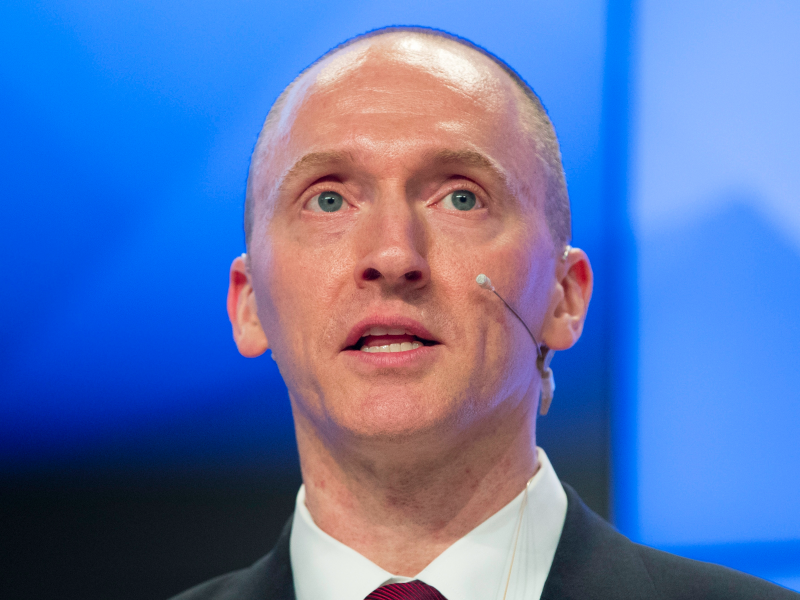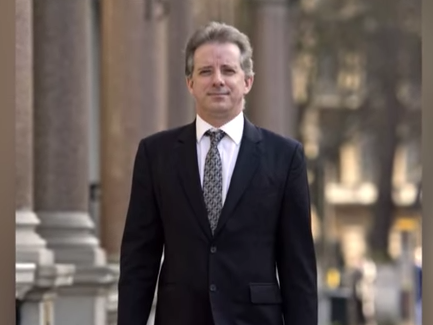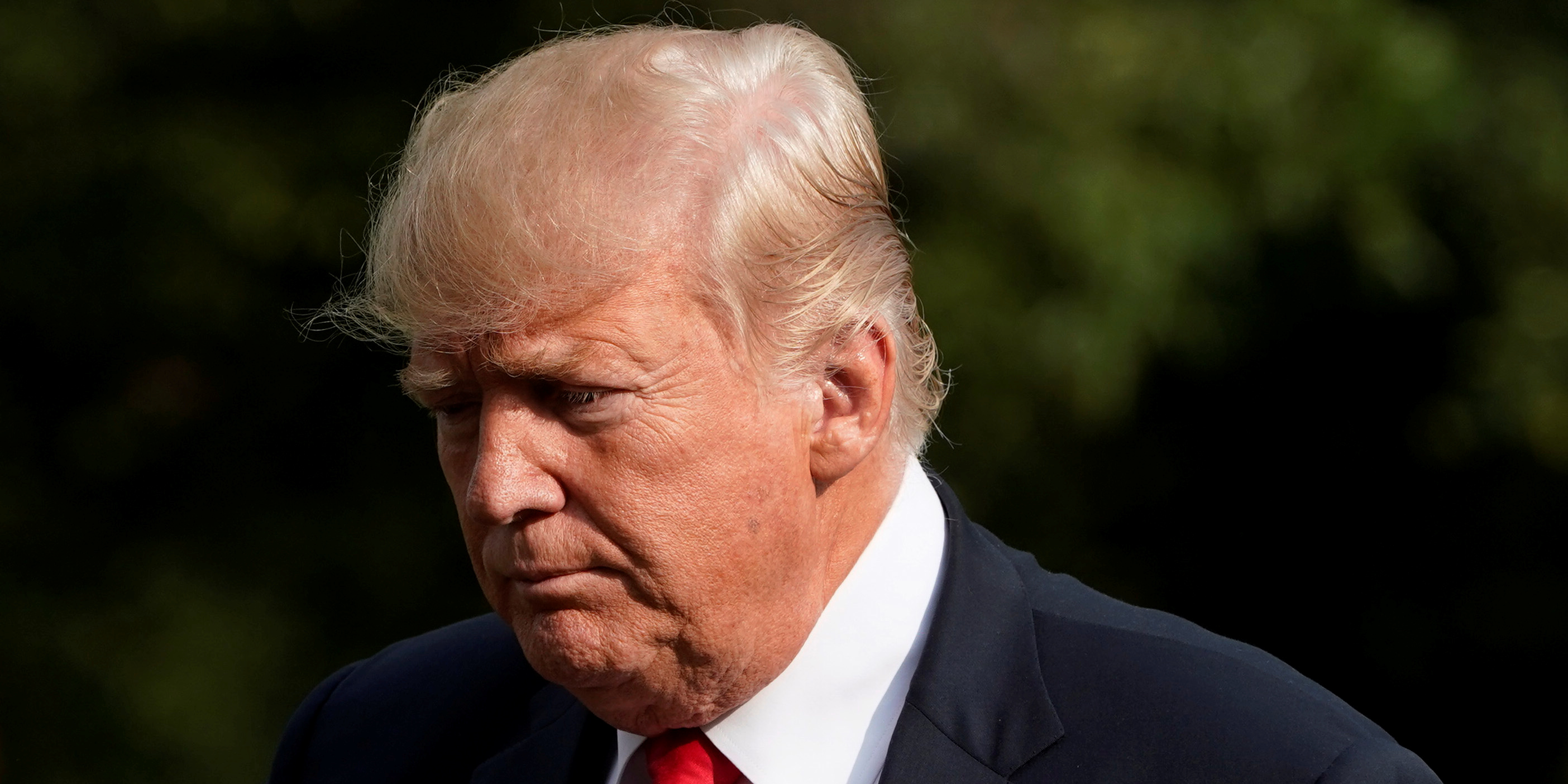- President Donald Trump’s decision to declassify select portions of an application, granted under the Foreign Intelligence Surveillance Act, that targeted the former Trump campaign aide Carter Page alarmed national-security and legal experts.
- Trump called for the immediate declassification of certain portions of the application, some of which appear to include information about confidential sources and methods.
- “The release of FISAs like this is off the charts,” one former Justice Department official wrote.
- Another former federal prosecutor from the Southern District of New York called Trump’s decision an “incredibly dangerous move that sets a really troubling precedent.”
Former law-enforcement officials and national-security experts sounded the alarm on Monday after the White House announced that President Donald Trump had ordered the immediate declassification of select portions of an FBI application to surveil a former campaign aide.
The warrant to monitor that aide, Carter Page, was granted under the Foreign Intelligence Surveillance Act. The Department of Justice earlier this year released the application with significant redactions amid accusations from Trump and his Republican allies that the FBI planted a spy within his campaign to cripple it before the 2016 election.
On Monday, Trump demanded the declassification of several pages of a June 2017 application to renew the Page FISA warrant, and of FBI interviews and reports connected to the surveillance.
David Kris, a former assistant attorney general for national security who’s an expert on FISA, didn’t mince words in reacting to the news on Twitter.
"The release of FISAs like this is off the charts," Kris wrote. "It is especially unprecedented considering that the FISAs have already gone through declassification review and the President is overruling the judgments of his subordinates to require expanded disclosure."
Joyce Vance, a longtime former federal prosecutor, largely agreed.
"Releasing FISA materials compromises national security," she tweeted. "Publicly releasing evidence during an ongoing criminal investigation is unprecedented."
An 'incredibly dangerous move'

The FISA process is arguably one of the most sensitive and secretive methods the US government uses when it comes to gathering foreign intelligence.
Obtaining a FISA warrant targeting a US person involves multiple levels of authorization from senior FBI and DOJ officials, as well as permission from a FISA Court judge.
Elie Honig, a former federal prosecutor from the Southern District of New York, called Trump's decision an "incredibly dangerous move that sets a really troubling precedent."
"To say you're going to throw open the information in a FISA warrant for plainly political purposes is incredibly reckless," he added.
The FBI's surveillance of Page began in October 2016 and continued at least until the summer of 2017.
His monitoring was related to the FBI's ongoing investigation into Russia's interference in the 2016 election and whether members of the Trump campaign colluded with Moscow to tilt the race in his favor.
On Monday, Trump asked the DOJ and the FBI to declassify pages 10 to 12 and 17 to 34 of the Page FISA application. One of those sections appears to relate to the period when Page worked on Trump's campaign as a foreign-policy adviser.
Trump did not ask the agencies to declassify subsequent portions of the document that detail Page's activities and Russian efforts to recruit him as an agent before he joined the campaign.
The president also did not order the declassification of another part of the document that details information Page provided to the FBI during an earlier interview, or sections that go over Russia's attempts to recruit New York City residents as intelligence assets.
While the Trump campaign has sought to distance itself from Page after he drew scrutiny, the former adviser testified to the House Intelligence Committee last year that he had several contacts with people linked to Russia, at times with the campaign's knowledge.
His testimony also appeared to corroborate key sections of the so-called Steele dossier, a collection of explosive memos compiled by the former British spy Christopher Steele that alleges collusion between the Trump campaign and Russia.
Trump seeks to declassify information that could compromise sources and methods

Pages 17 to 34 of the application deal with Page's possible coordination with Russian government officials on activities designed to influence the 2016 election.
Crucially, several parts of this section appear to contain information about confidential sources that Steele used while compiling his dossier, as well as Steele's history as an FBI source.
Several top congressional Democrats, like Rep. Adam Schiff, the ranking member on the House Intelligence Committee, and House Minority Leader Nancy Pelosi, also warned that the declassification and release of some materials Trump requested could endanger sources and methods.
Frank Montoya Jr., a recently retired FBI special agent, emphasized the nature of the intelligence-gathering process following news of Trump's decision.
"The FISA process is secret for a reason: to protect sources and methods," Montoya said.
He added that publicly disclosing more details from the Page FISA application could not only compromise such information, but risk the US's relationship with its partners in the intelligence community.
"No question, we are crossing a major red line if we do that," Montoya said. "We cannot do our work without those sources."
Kris echoed that view.
"The President has the literal authority to do this," he tweeted, "but here, as in so many other areas, his exercise of authority is tainted by a severe conflict of interest, as he is a subject of investigation to which these FISAs pertain."
Kris added: "This is perhaps the signal feature of many of his worst actions - he seems assiduously to view and engage with everything through the straw-sized aperture of his own self-interest instead of the broader national interest."
The White House said Trump's decision was made in the name of "transparency."

